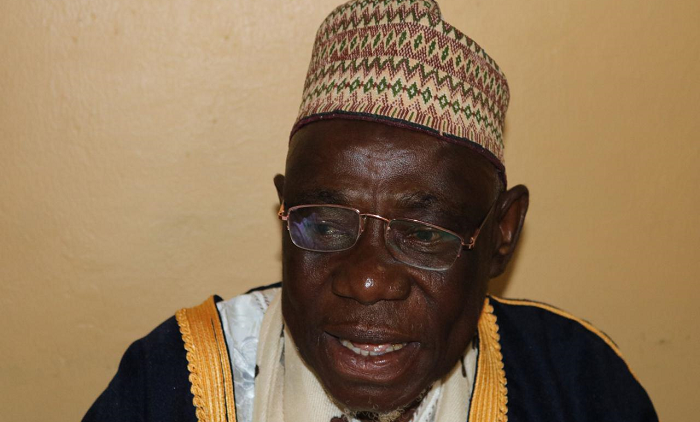
‘Accept results of December 7 elections’
With three months to this year’s elections, Ghanaians have been enjoined to accept and respect whoever emerges as leader of the country after the elections.
That is necessary because when it comes to national elections, it is God who elects a leader to steer the affairs of state in the collective interest of all.
Relatedly, the election management body, the Electoral Commission (EC), has also been tasked to do its job well by being “very neutral, transparent and thorough” in the conduct of the presidential and parliamentary elections on December 7.
Interviews
These sentiments were espoused by the President of the Upper East Regional House of Chiefs and Chairman of the Regional Peace Council, Sokoti Naaba Sigri Bewong; the Upper East Regional Chief Imam, Alhaji Adam Yusif, and the Upper East Regional Police Commander, Deputy Commissioner of Police ( DCOP) Mr Simon Afeku, in separate interviews in Bolgatanga in the Upper East Region last Wednesday.
The three leaders were speaking to the Daily Graphic during the first in the series of town hall meetings which opened in Bolgatanga last Wednesday.
The meetings are an initiative, sponsored and organised by the Graphic Communications Group Limited (GCGL), as part of its efforts to bring political parties and their constituents together to engage each other in an interactive manner.
The town hall meetings, which will also take place in Sunyani in the Brong Ahafo Region, Koforidua in the Eastern Region and Cape Coast in the Central Region, are part of the GCGL’s efforts at assisting to deepen and consolidate multi-party democracy in the country.
They are on the general theme: “Good governance key to the development and growth of Ghana”.
The political parties are expected to outline their plans towards free, fair and peaceful 2016 elections at the meetings.
Erosion of confidence
The Sokoti Naaba pointed out that “Ghana has, over the years, been globally known to have conducted peaceful elections and nothing untoward should be done to erode the confidence the global community has in the country”.
To be able to do so, he challenged all key stakeholders, including the EC, the National Election Security Task Force, the media and traditional authorities, not to rest on their laurels but discharge their duties in a very professional manner that had the national interest and peace as a focus.
According to the Sokoti Naaba, that was the only way to engender confidence and trust in the whole national exercise, whose outcome would be accepted by all Ghanaians in particular and the larger global community.
The President of the Regional House of Chiefs had a word of advice for traditional leaders: “We must remain neutral and allow our palaces to be opened to all contesting political parties.”
He bemoaned the situation whereby some chiefs were openly endorsing the candidature of some presidential aspirants, saying “this is definitely constitutionally wrong because our Constitution debars chiefs from partaking in partisan political activity”.
Preach peace
For his part, Alhaji Yusif expressed the conviction that this year’s elections would be peaceful and that Ghanaians would accept and respect whoever emerges the leader of the country, come January 7, 2017 when the new President would be sworn into office.
He disclosed that the leadership of the Muslim community were preaching in the mosques and talking to Ghanaians, especially Zongo youth, on the need for peace before, during and after the elections.
He said that was imperative because if there was any confusion and violence, the youth, women and children were those who would suffer the most.
The Regional Chief Imam also cautioned the Ghanaian populace to stay away from and shun violence in the whole electoral process.
Mr Afeku, for his part, observed that there was relative peace in the region and the police command was doing everything possible to maintain and sustain it.
He pointed out that the onus for ensuring peace before, during and after the elections lay on the security agencies but the responsibility mostly lay on all stakeholders, including the electorate.
GCGL commended
The three leaders commended the GCGL for initiating and organising the town hall meetings.
They were generally of the opinion that the initiative was a bold step in the right direction.
